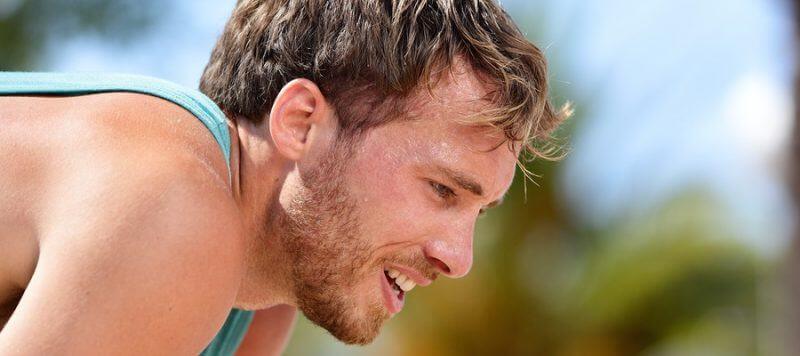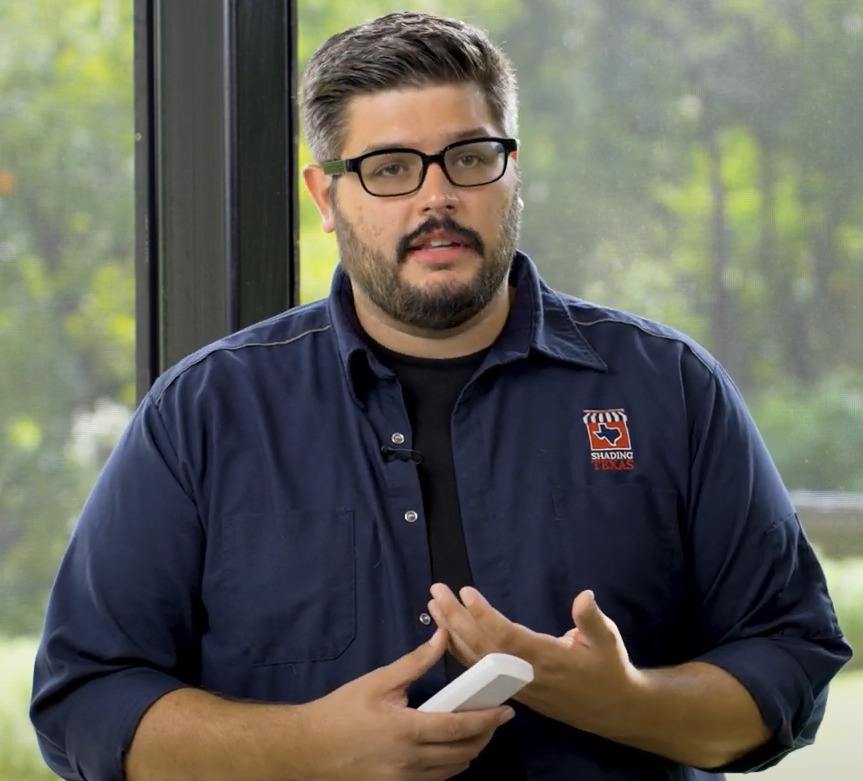
Heat exhaustion is a type of fatigue and/or sickness that occurs if you are in the heat for an excessive amount of time.
Your body must maintain its core temperature as close to 98.6ºF as possible. As a result, the body sweats and the sweat on your skin evaporates, cooling you down in times of high heat. If you sweat too much, you may experience dehydration, which affects the body’s ability to cool down. As a result, your core temperature can rise, which causes you to go into heat exhaustion. Often, exposure to the heat outside compounds physical exhaustion, leading to excessive fatigue which can make a person very ill. The exhaustion can be created by one of many activities, including:
- Alcohol consumption
- Dehydration
- Excessive sun exposure
- Exercise
- Prolonged physical activity
Types of Heat Exhaustion
Salt exhaustion
A lack of salt in the body. Salt in the bloodstream helps humans retain water. When you sweat profusely, water and salt are expelled from your body, leaving your bloodstream with less salt than it needs to maintain your body’s equilibrium. Symptoms of salt exhaustion
- Dizziness
- Vomiting
- Cramps
- Nausea
Water exhaustion
A lack of water in the body. Water helps cool down the body and provides basic hydration to muscles when they need it. When the water has been expelled due to excessive heat, the body cannot operate properly and can shut down. Symptoms of water exhaustion
- Headache
- Fatigue
- Blacking out
Other Heat Exhaustion Symptoms
- Dark urine
- Delirium and confusion
- Diarrhea
- Dizziness
- Excessive sweating
- Moist skin w/goosebumps
- Headache
- Low blood pressure when standing up
- Moist skin w/goosebumps
- Pale skin
- Weakness
Heat Exhaustion Risk Factors
Along with causing a high heat index, high humidity and physical exertion significantly increase the risk of heat exhaustion. If humidity is greater than 60%, your sweat cannot evaporate, which allows your body to be cooled. Children under the age of 4, along with adults over the age of 65, are more likely to suffer from heat exhaustion. At these ages, the body’s ability to regulate temperature is diminished. Other risk factors are:
Obesity
Greater weight means greater heat retention. This can affect the body’s ability to cool down when needed.
Specific drugs
Heart medications, along with high blood pressure and allergy medicines, can affect the hydration of the body. Be sure to ask a doctor about heat exposure and medicines such as:
- Antihistamines
- Antipsychotics
- Beta-blockers
- Blood pressure medication
- Diuretics
- Heart medication
- Stimulants
- Tranquilizers
Specific medical conditions
Any conditions which may affect the body’s circulation can put you in jeopardy. Be aware of heat exhaustion if you suffer from:
- Alcoholism
- Diabetes
- Heart disease
- Kidney disease
- Lung disease
- Sickle cell trait
- Sunburn
- Underweight status
Exposure to new temperatures
If you are from a typically cold climate and are suddenly exposed to, say, an intensely hot Texas summer, you are immediately put at risk.
How to Treat Heat Exhaustion
Stop what you’re doing
Whatever you are doing is not as important as maintaining consciousness. Get out of the sun and to a shaded spot. Rest immediately.
Cooldown
Get inside into an air-conditioned room if you can. Apply a wet cloth to your forehead to help accelerate the cooling process. If possible, take off any unnecessary clothes when inside (shoes, socks, coats, jackets, etc.).
Massage muscles
If you are suffering from cramps, you need to get the blood flowing fast. Knead the affected muscle to stimulate blood flow and get water flowing into the affected area without interruption.
Drink fluids
Drink water or sports drinks rich in electrolytes. This will cool down your body and restore water and salts into the bloodstream. The water will cool, and the electrolytes will help retain more water. Do not drink caffeinated beverages. Caffeinated beverages are diuretics, which will remove even more water from your body and make your heat exhaustion even worse.
Elevate the legs slightly
In some cases, heat exhaustion can lead to shock. Elevating the legs lessens the chance of this and improves blood flow to the heart. If this is uncomfortable, sit at a 90° angle or a position most comfortable to you. Ideally, elevating the legs will improve blood flow, but other comfortable positions can help as well.
How Long Does Heat Exhaustion Last?
Heat exhaustion should last no more than 15 minutes. If you still have symptoms of heat exhaustion after 15 minutes of inactivity, go to the doctor. Also, if your core temperature is more than 104º F, go to a physician immediately.
Heat Stroke vs. Heat Exhaustion
Heatstroke is a much more severe form of heat exhaustion. Heat exhaustion can lead to heatstroke if symptoms are left untreated for long periods of time, putting your safety in extreme danger. Heatstroke incorporates all of the symptoms of heat exhaustion but is more severe. Heatstroke can lead to hallucinations, seizures, coma, loss of consciousness, and even death. If you are feeling any of the illnesses of heatstroke, begin prevention measures and avoid the stress of any hot or extreme temperatures. Administer aid immediately when seeing heat stroke symptoms occur.
How to Prevent Heat Exhaustion
Stay in shaded places
Retractable awnings or sunscreens can reduce temperatures substantially during a hot summer day. If you have to work outside, deploy your awning and sit underneath it as soon as you feel tired. Stay away from hot areas and stay in shaded spots. That includes staying out of cars without air conditioning as much as possible.
Adjust your body to the heat
If you’re new to Texas or any other hot place, don’t rush into physical activity during summer or warmer months. Your body needs time to adjust to the heat, so take it easy in your first couple weeks here.
Avoid getting a sunburn
Along with being highly painful, sunburns affect the body’s ability to get rid of heat. Wear sunscreen with no less than SPF 30 and keep covered so you can keep your body cooled down.
Drink fluids
Though it might be inconvenient to take a jug of water everywhere with you, it can greatly reduce your chance of heat exhaustion.
- Drink at least 20 ounces of water 3 hours before exercising and drink another 8 ounces immediately before working out.
- While exercising, drink at least 7 ounces of water every 20 minutes regardless of your thirst. After exercising, drink another 8 ounces.
Wear loose clothes
Loose clothes allow the skin to “breathe,” which lets sweat evaporate and allows you to cool down. The lighter in color the clothes are, the better. Also, lighter materials help sweat evaporate easier as well. Call us today at 512-264-1500 or contact us to learn more about our sun shading products and installation services.

Matt Pierce has been working in the solar shade industry for over 15 years, providing sun protection in the extremes of Alaska and Texas. His dedicated team at Shading Texas will get your the sun solutions you need to enjoy your patios and homes for years to come by blocking out bugs, sun, wind, and rain!
